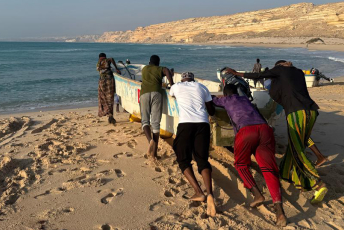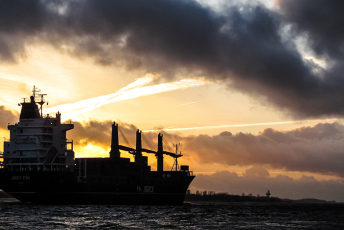Multinational naval exercises such as Grand African Navy Exercise for Maritime Operations (NEMO) and Obangame Express contribute to improved maritime security in the Gulf of Guinea because they build the capacities of the region’s navies.
However coastal communities and citizens largely remain left out. This makes these efforts mere technical operations for experts that miss out on trust-building and collaboration opportunities with key actors of the security value chain.
On 28 October 2019, the French Navy launched Grand African NEMO, a 10-day multilateral cooperation initiative aimed at preventing and fighting criminality at sea in the Gulf of Guinea. The exercise, which included the participation of navies and other maritime sector actors from 18 of 19 coastal countries of the region and nine European states, comprised 40 simulation activities. Topics were ‘based on countries’ identified topics’, a French Navy expert told ENACT.
For instance, Nigeria simulated piracy attacks and crude oil theft, and Cameroon a case of grand vessel pollution. The United Nations Office on Drugs and Crime also provided judicial training where requested.
Rear Admiral Gilles Boidevezi – in charge of international relations in the French Navy – told Radio France International that the security and stability of countries of the Gulf of Guinea entailed the capacity of states to maintain economic activities. And these activities require a Gulf of Guinea that is free of piracy, illegal fishing and other maritime crimes.
France’s intervention started in 1990 with the Corymbe missions that provided training and operational partnerships to the region’s navies. Drawing on their lessons and recommendations, the strategy was overhauled in 2017 to include the commanding architecture and land structures, rather than just vessels. Grand African NEMO was launched in 2018 for extended scope and greater impact.
The annual gathering targets all actors of the Yaoundé Architecture – the regional maritime security coordination mechanism initiated in 2013 – and key partners. In 2019 they included the United States, Spain, Portugal, and guest countries such as Brazil.
Grand African NEMO is a remarkable demonstration of naval power and know-how, with a total of 32 vessels at sea and seven aircraft, including two dedicated to sea surveillance in 2019, according to the French Navy expert. Yet this impressive arsenal didn’t deter criminals who kidnapped crew members on vessels in Benin and Togo in the same week in November 2019 that the exercise was carried out.
Involving coastal communities that are not yet part of these exercises could improve their impact. Small-scale fishers and individuals travelling on makeshift boats for example are the main victims of illegal fishing and armed robbery at sea. Frustrated by sentiments of state neglect and lack of support, or low investment from the business sector, some turn to crime. Building their capacities to better grasp the security stakes of the maritime domain could change their perspectives.
Grand African NEMO organisers tell ENACT that the 2020 edition will focus on land activities and will include shared collection and dissemination of information and coordination of resources. That is a great opportunity to include the less obvious partners of a safer and prosperous Gulf of Guinea.
Agnes Ebo’o, ENACT Regional Organised Crime Observatory Coordinator – Central Africa







